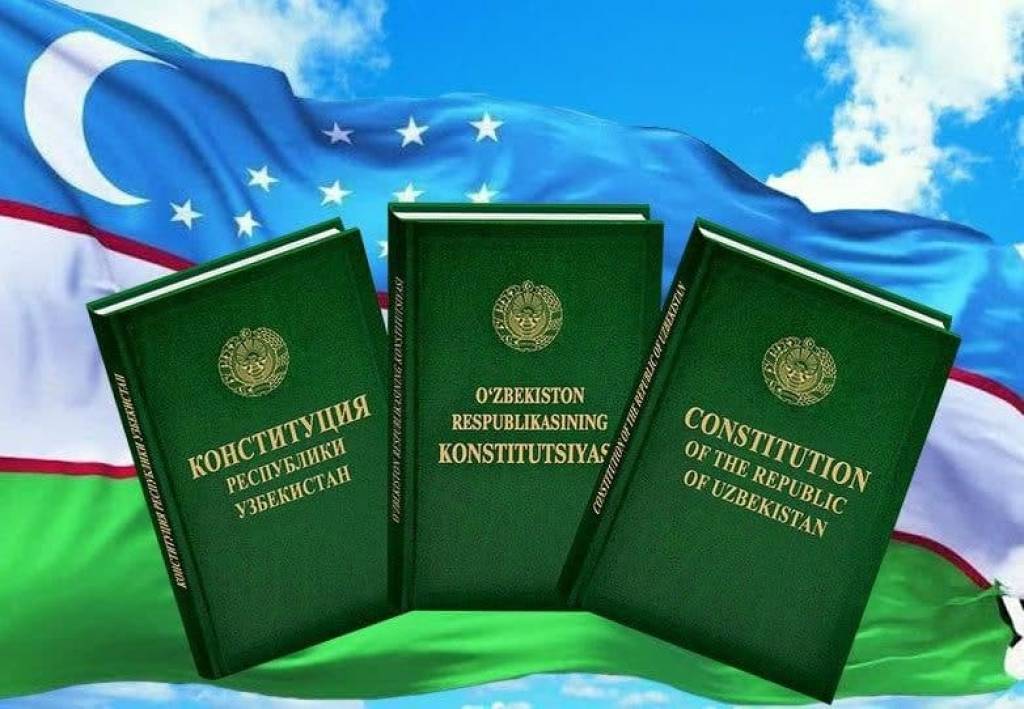
At the meeting of the Head of the state with members of the Constitutional Commission on introducing amendments to the Constitution of the Republic of Uzbekistan and the implementation of organizational measures, my attention was drawn to the words of President Shavkat Mirziyoyev that the issue of free movement of citizens should be more widely reflected in the Constitution.
In particular, he said, there was another issue that had bothered me for many years, and that was the registration problem. To exclude a situation that infringes on our people, their rights, we have eliminated checkpoints on the roads and the so-called registration. To systematically eliminate such barriers in the future, every citizen of Uzbekistan should have the right to move freely around the country, freely choose a place of residence. Every citizen must be guaranteed the right to freely leave and return to the country.
Indeed, free movement is an inalienable human right. The right to freedom of movement and residence is enshrined in the Universal Declaration of Human Rights, the International Covenant on Economic, Social and Cultural Rights and the International Covenant on Civil and Political Rights. Therefore, these rights and freedoms are guaranteed in the constitutions of the democratically developed countries of the world.
It is no secret that in the history of Uzbekistan there were legal norms and legal institutions that restricted the right to freedom of movement. These include several rules that restrict the movement of people, such as passport control, registration regime, searches and obtaining permits from several authorities to enter and leave the country. For example, in the Constitutions of the former USSR of 1924, 1936, 1977, there was no such right at all, a citizen was registered at his place of residence. Consequently, it was a factor that firmly connected the citizen with the place of his residence and work.
The Constitution of independent Uzbekistan, adopted 30 years ago, for the first time enshrined the right that “Any citizen of the Republic of Uzbekistan shall have the right to freedom of movement on the territory of the Republic, as well as a free entry to and exit from it, except in the events specified by law”. However, the rule “except in the events specified by law” restricted the free movement of citizens of the country based on certain laws and regulations. How did it manifest itself?
First, the registration system that existed until 2018 limited other rights of individuals. For example, the right to work was associated with this system. In particular, the rule on bringing to responsibility for hiring citizens who do not have a temporary or permanent residence permit, which existed in the Administrative Responsibility Code, is also one of them. The use of banking services, in particular loans, currency exchange, was carried out based on the registration. The existence of this system led to cases of corruption.
There is no sphere that has not been reformed as part of the Action Strategy. In addition, the passport and registration system has been radically improved. In particular, the introduction of information technology in this area, the expansion of opportunities for the implementation of public services through this created great convenience for the population. A foundation has been laid to save time and money and eliminate factors that encourage corruption.
Also, the removal of norms linking labor, financial and banking services, registration and purchase of housing serves to implement the generally recognized right to free movement.
If we turn to the legislation of foreign countries in this area, then the rights of the individual to free movement and choice of place of residence are enshrined in the Basic Law as a value. The consolidation of this norm was first reflected in the Constitution of the French Republic of 1791.
The Canadian Constitution enshrines the right to freedom of movement as a socio-economic right, closely linked to a citizen’s right to work, to work under equal conditions and receive equal pay for work, and to receive social assistance, regardless of the province in which he or she resides.
Although there is no constitutional law in the United Kingdom, the rights and freedoms of the individual are enshrined in a provision saying that a citizen may go and enter wherever he pleases, so long as he does not violate the prohibitions and norms of criminal law or the rights of other citizens”.
The guarantee of the human right to freedom of movement in one form or another is reflected in the laws of almost all countries of the world. And against the background of the cardinal reforms being implemented in the country, based on the principle of respect for human dignity, we think that the time has come to determine the right of every citizen to free movement, free choice of place of residence, as well as unhindered exit from the country and entry in the manner prescribed by legislative acts.
The inclusion of this provision in the Constitution is the legal basis for the realization of the natural rights of every person, as well as serves to form a positive image of Uzbekistan in the international community.
Sakhipjamal DJOLDASOVA,
Head of Uzbekistan MIA Department, Candidate of Legal Sciences